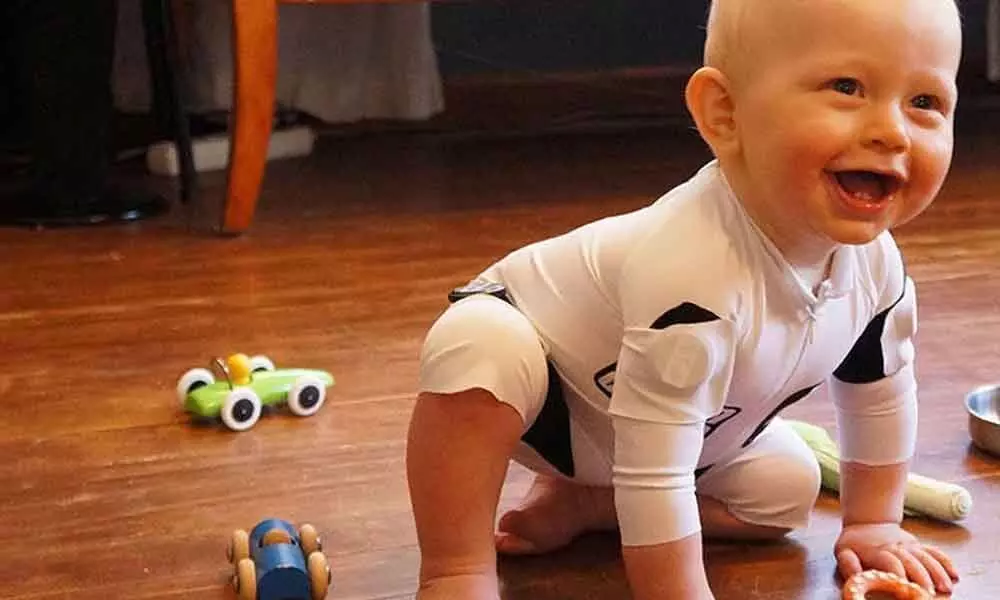Live
- Learn from fighting spirit of women bravehearts: VHP VP
- BJP MP Arvind, MLA Sanjay Kumar meet CM Revanth
- Rapido partners with L&TMRHL to provide discounted rates
- Kisan Diwas 2024: A Day Dedicated to honor our Farmers.
- Axed ACP takes the wind out of Pushpa hero’s sails
- Tender apology to CM, mantri tells Allu Arjun
- CM condemns attack on Allu Arjun’s house
- Allu Arjun’s house attacked, police arrest 6 persons in city
- APSRTC to replace diesel buses with electric buses
- Komatireddy brothers should get Oscar for lying: BRS
Just In
Smart jumpsuit to spontaneously measure infants' movements developed


London: In a first, researchers have developed a smart jumpsuit that accurately measures the spontaneous and voluntary movement of infants from the...
London: In a first, researchers have developed a smart jumpsuit that accurately measures the spontaneous and voluntary movement of infants from the age of five months, an advance that may aid in the early diagnosis of neurological disorders affecting mobility.
The study, published in the journal Scientific Reports, noted that the assessment of spontaneous and voluntary movements is part of the neurological examination of infants. According to the researchers, including those from the University of Helsinki in Finland, the quantitative tracking of children's motility in their natural environment has not been possible. They said until now children have been primarily qualitatively assessed at the physician's or physiotherapist's practice.
This requires taking into account the fact that the infant's behaviour in the practice setting does not necessarily match that seen at home, the scientists noted. "The smart jumpsuit provides us with the first opportunity to quantify infants' spontaneous and voluntary movements outside the laboratory. The child can be sent back home with the suit for the rest of the day," explained study co-author Sampsa Vanhatalo from the University of Helsinki. According to the researchers, the data obtained from the smart jumpsuit is valuable, since the detection of abnormalities in the neurological development of infants at an early stage enables early support. They said the ability of the human brain to form new nerve connections and facilitate new learning is at its strongest in early childhood.
These brain functions are benefited by supporting child development, which are targeted at recurring everyday activities, the scientists noted.
According to Vanhatalo, the new method quantifies infant motility as reliably as a human being would be able to do by viewing a video recording. After the measurement, he said, the infant's actual movements and physical positions will be known to the second, after which the data is analysed using a computer. "This is a revolutionary step forward.
The measurements provide a tool to detect the precise variation in motility from the age of five months, something which medical smart clothes have not been able to do until now," Vanhatalo said.
According to Leena Haataja, another co-author of the study from the University of Helsinki, developmental disorders in today's pressure-dominated world pose a considerable risk that can lead to learning difficulties and obstacles in the competition for education and jobs.
"The early identification of developmental disorders and support for infants' everyday functional capacity in interaction with the family and the growth environment constitute a significant factor on the level of individuals, families and society," Haataja said. The researchers believe that the smart jumpsuit can also be used in the future for the objective measurement of how various therapies and treatments affect children's development.

© 2024 Hyderabad Media House Limited/The Hans India. All rights reserved. Powered by hocalwire.com






